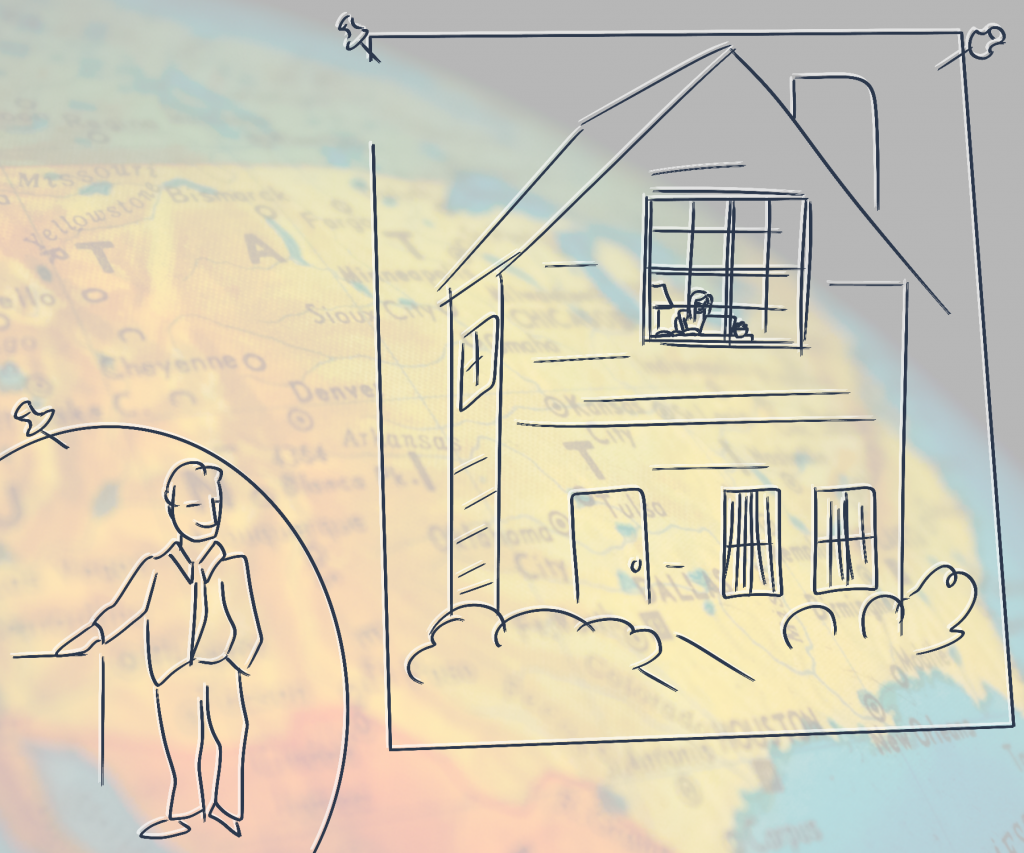The leaves are falling, the air’s getting chilly and renting season is on the horizon. But for Binghamton’s 7,000 student renters, it’s important to know the underlying mechanisms that drive the area’s rental economy — particularly, the fact that many of the landlords juggling dozens of student rentals are situated hundreds of miles away from Broome County.
Roughly a third of the homes on Walnut Street, a heavily student-populated road on Binghamton’s West Side, are owned by landlords that aren’t from Binghamton, according to property records, and other streets have similar ratios. Many of the homes between Front Street and Oak Street see similar concentrations of Binghamton University students, and likely will continue to for the foreseeable future as the University struggles to house its student population.
But this reality often leads to issues. In many cases, property in Binghamton is cheap to buy for those from wealthier areas, including the New York City metro area. For these investors, Binghamton is an ideal place to own rental property, because it has a large population of inexperienced tenants that guarantee a consistent influx of revenue. Low-cost houses, minimal standards and lots of renters mean a lucrative enterprise for those who can afford it. However, people who actually live and work in Binghamton often cannot, because compared to the wealthier areas that many landlords derive from, Binghamton has lower-paying jobs, and all of the out-of-town investment reduces the already slim opportunities for locals who might want to become property owners.
This system also ensures that profits being earned from student renters often do not go back into the community, creating a severe lack of long-term investment in Binghamton. Although property owners from other areas of New York and surrounding states may hire locally based managers to maintain their properties, these individuals only receive a cut of the revenue, despite doing most of the work. Therefore, money is funneled out of Binghamton, rather than into it.
Additionally, while property managers working for far-away landlords are expected to appropriately maintain their buildings, not all do. When students sign on to leases that include the maintenance of the property, and the landlord chooses to slack on tasks such as mowing the lawn or keeping the premises clean, it’s inevitable that the home will fall into disarray. Often, this only serves to exacerbate the existing town-gown divide in student-populated sections of Binghamton, even though the students living in the homes are not at fault. This is bound to frustrate both the families that must live around the filth and disorder as well as the students who have no choice but to live with it, and discrepancies like this are what have led to numerous complaints by Binghamton residents about students living in their neighborhoods.
Transparency is also a huge and often overlooked issue when students sign leases. In many cases, the property manager acts on behalf of the landlord for virtually everything the student requires, including signing the lease. Because of this, it’s easy to mistake the property manager for the landlord and students end up signing away thousands of dollars to a mysterious individual or company that can be hard to pin down.
Some BU graduates have themselves become landlords, and what better landlord is there than one who has lived through the trials of being a student renter? But as nice as it is, graduates becoming landlords doesn’t eliminate the issue of many landlords being from outside Binghamton. Not enough graduates go on to become landlords, nor do they all remain in the Binghamton area, and many still come from areas of wealth that give them a leg up on local residents.
This externalized rental situation has been the norm for many years now and isn’t likely to change, but the landlords foreign to Binghamton can still be conscientious in how they manage their properties. Landlords that live outside Binghamton should make an effort to regularly communicate with the tenants they serve, meet them face to face to establish trust and comfort and attend some of the many events that define the experience of living in the area. Landlords, from Binghamton or elsewhere, have more than just a financial stake in their rentals — they help define the community, too.



